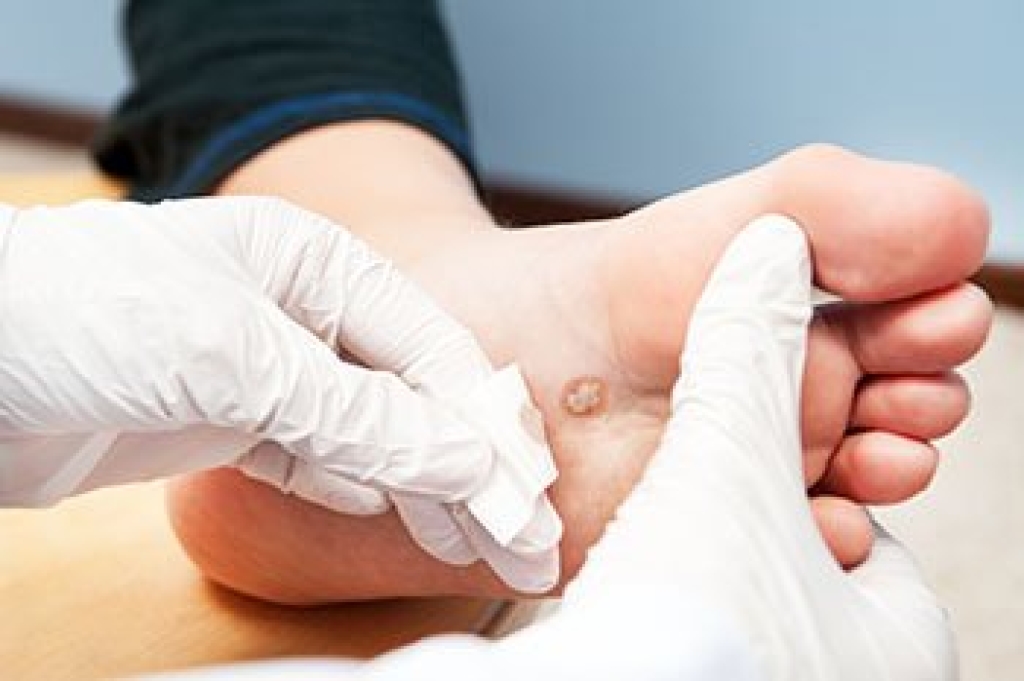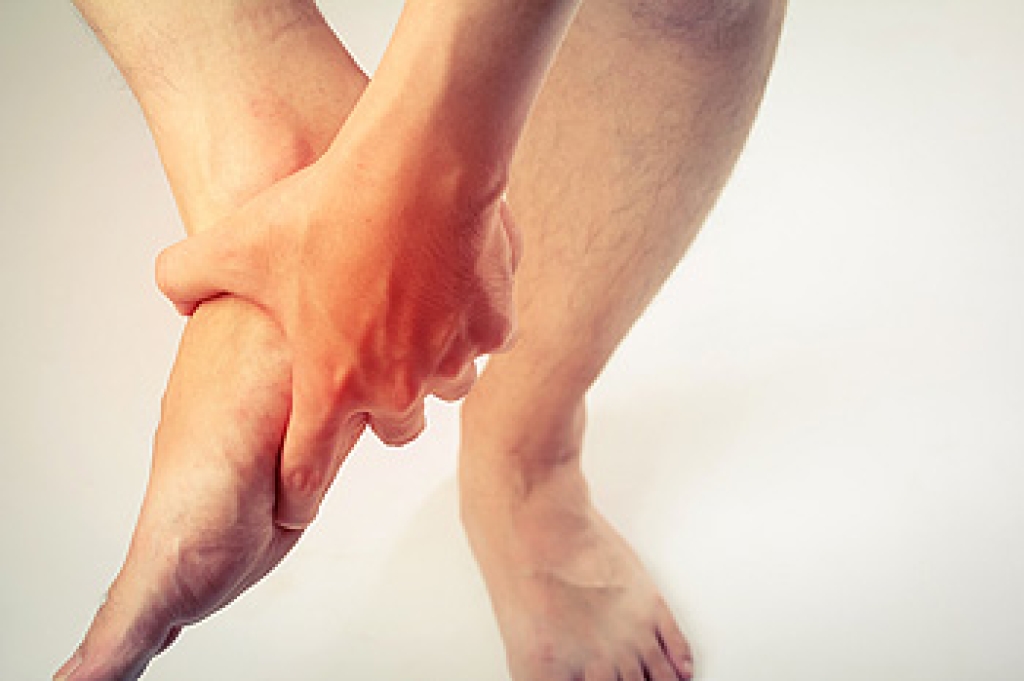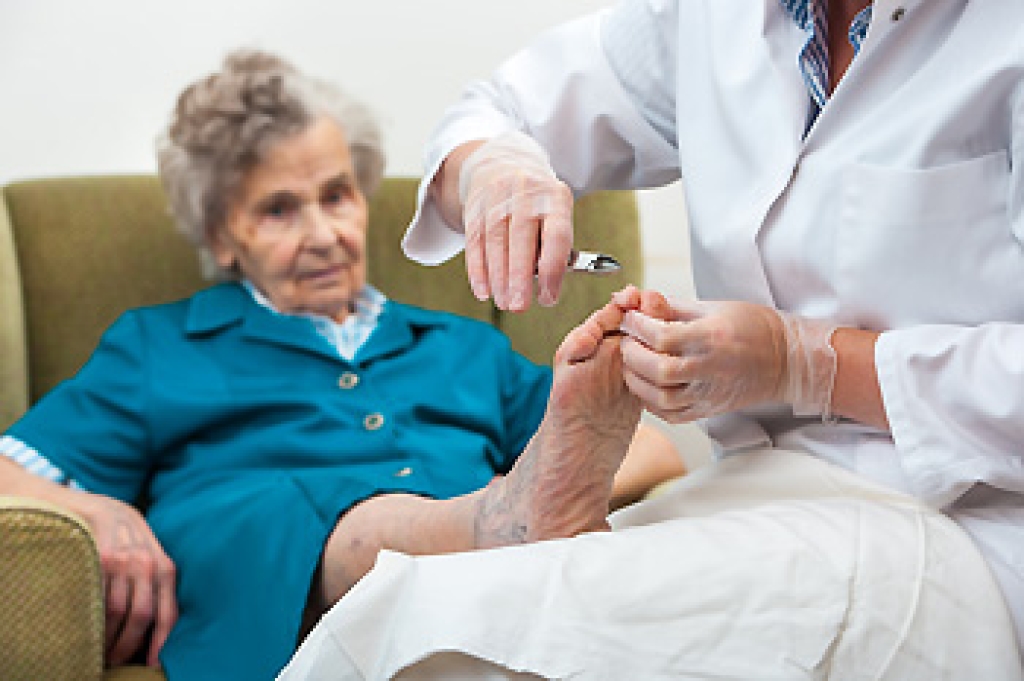
Plantar warts are skin growths on the bottom of the foot caused by the human papillomavirus, or HPV, which enters through tiny cuts or weak spots in the skin. They may appear as small, rough, grainy lesions that interrupt the normal lines of the skin, sometimes with tiny dark spots inside. Plantar warts can feel tender or painful while standing or walking, often creating a sensation similar to stepping on a pebble. Symptoms may include localized pressure, mild swelling, or discomfort that worsens with activity. Causes are often linked to walking barefoot in warm and moist environments, such as locker rooms or around pools, as well as reduced immunity or repetitive foot stress. A podiatrist can start by evaluating the lesion, confirming the diagnosis, and ruling out other conditions like corns or calluses. Treatment options include topical therapies, debridement, or custom padding to relieve pressure. Because early professional care supports faster relief and prevents spreading, it is suggested that you schedule an appointment with a podiatrist for effective relief and treatment solutions.
Plantar warts can be very uncomfortable. If you need your feet checked, contact Barbara J. Aung, DPM from Aung Foot Health Clinic . Our doctor will assist you with all of your foot and ankle needs.
About Plantar Warts
Plantar warts are the result of HPV, or human papillomavirus, getting into open wounds on the feet. They are mostly found on the heels or balls of the feet.
While plantar warts are generally harmless, those experiencing excessive pain or those suffering from diabetes or a compromised immune system require immediate medical care. Plantar warts are easily diagnosed, usually through scraping off a bit of rough skin or by getting a biopsy.
Symptoms
- Lesions on the bottom of your feet, usually rough and grainy
- Hard or thick callused spots
- Wart seeds, which are small clotted blood vessels that look like little black spots
- Pain, discomfort, or tenderness of your feet when walking or standing
Treatment
- Freezing
- Electric tool removal
- Laser Treatment
- Topical Creams (prescription only)
- Over-the-counter medications
To help prevent developing plantar warts, avoid walking barefoot over abrasive surfaces that can cause cuts or wounds for HPV to get into. Avoiding direct contact with other warts, as well as not picking or rubbing existing warts, can help prevent the further spread of plantar warts. However, if you think you have developed plantar warts, speak to your podiatrist. He or she can diagnose the warts on your feet and recommend the appropriate treatment options.
If you have any questions, please feel free to contact our office located in Tuscon, AZ . We offer the newest diagnostic and treatment technologies for all your foot care needs.









